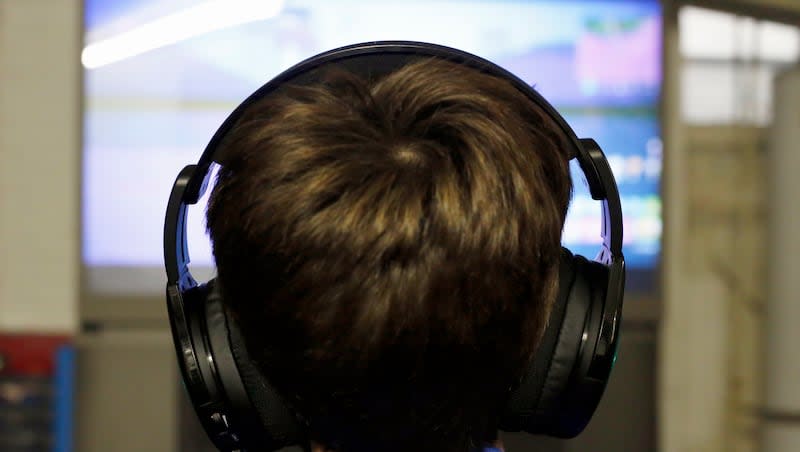Limiting ‘free play’ may be worse than screen time for children, professor says

- Oops!Something went wrong.Please try again later.
Peter Gray, a professor of psychology and neuroscience at Boston College, believes it’s the lack of free play — not just the proliferation of cellphones and social media — that’s at the root of the youth mental health crisis, which has led to increasing rates of suicide and depression among teens.
Last year, Gray and his co-authors published a paper in the Journal of Pediatrics, drawing on neuroscience, developmental psychology, evolutionary biology and research in other fields. They concluded that the decline in mental health in teens and children dates back nearly five decades, long before cellphones and social media emerged, according to The Boston Globe. The authors tie this downward trajectory with fewer opportunities “for children and teens to play, roam, and engage in other activities independent of direct oversight and control by adults,” the authors wrote in the paper.
“We are so afraid of the kinds of dangers that are actually so rare that we’re not allowing our children to prepare themselves for the bumps on the road of life and later on they fall apart,” Gray told WBZ News, Boston’s CBS affiliate.
In 2013, Gray published a book called “Free to Learn,” which argued that free play — play that is unstructured and initiated by the child — builds children’s resilience. Gray is part of a broader movement of experts, such as Lenore Skenazy and Abigail Shrier, who have been advocating for parents to move away from helicopter and gentle parenting toward allowing children to take on more independent, unsupervised activities.
“From an evolutionary perspective, the whole purpose of childhood is to provide the time and opportunity for children to develop the character traits, the confidence, the ability to be independent. But to develop those abilities, they need experience with being independent,” Gray said in an interview with The Washington Post. “Children like to do things on their own. That’s instinctive, but it’s almost being driven out of them these days as we do more and more for them, and allow them to do less and less.” Gray points out that while a pickup sports game would be considered play, an adult-directed Little League game would not be defined as play by many scholars.
Schools have also become the source of additional stress in children’s lives, as standardized tests and and standards, combined with shortened lunch breaks and recess, have transformed schools and created new pressures, according to Gray.
“Free play doesn’t go on a résumé, but being on a traveling sports team might,” Gray told The Washington Post. “There is this view that children develop fast when they’re carefully guided and taught by adults and that what children do on their own is sort of a waste of time, but that is not how children have developed in the past. They develop primarily by interacting with other kids, learning from experience.”
Through play and experience, children learn how to assess danger and develop problem-solving skills, and navigate emotions like disappointment and anger that arise in the process of free play.
“We’ve taken away the more enjoyable aspects of school and the inevitable result of that is school has become anxiety provoking and depressing,” Gray told WBZ.
Gray disagrees with the primary emphasis on screens in the current conversation about the causes of the youth mental health crisis. For instance, Gray disagrees with this framing as put forth by Jonathan Haidt in his new book “The Anxious Generation,” per The Boston Globe. In fact, Gray believes the rise of collaborative online gaming in the 2000s may have temporarily reversed the sliding trajectory of mental health problems.
Lenore Skenazy, the author of “Free-Range Kids” and Let Grow, a nonprofit advocating for childhood independence (founded by Skenazy, Gray and Haidt), told the Globe that taking the phones away will not solve the problem, but we need to “give kids back what we have taken out of their lives, which is the autonomy to be part of the world without constant supervision.”
Play helps children develop an internal locus of control, according to Gray, and this creates a safeguard against depression in the future.
“One thing that clinical psychologists have long known is that if you don’t have a strong internal locus of control, that sets you up for anxiety and depression,” Gray said in a conversation at Harvard Graduate School of Education. “That’s the kind of sense of helplessness that gets created when we deprive children of the opportunity to learn that they can do things, they can initiate things, they can solve problems on their own.”

